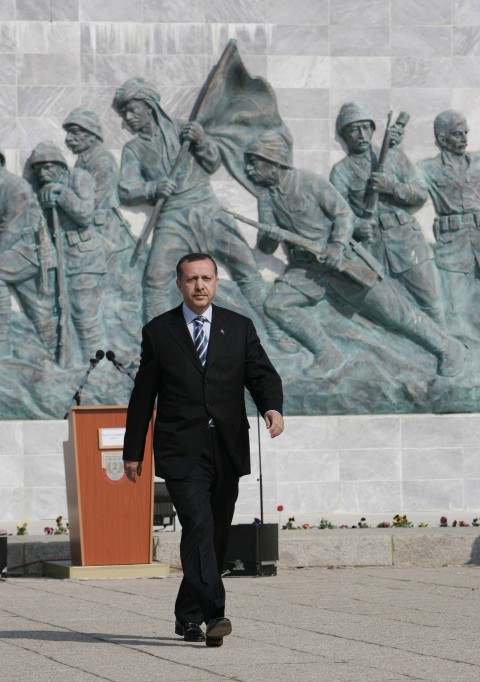Turkey displays a new level of religious nationalism in Syria campaign
President Recep Tayyip Erdoğan has likened Turkey's army to Ottoman troops in WWI, calling them martyrs fighting for their religion.

(The Christian Science Monitor) When Turkey’s armed forces seized control of the Kurdish enclave of Afrin in northern Syria in March after a two-month campaign, it was presented as a victory by “Islam’s last army” in a holy war.
Over the years Turkey—the second-largest army in the NATO alliance, with a fiercely secular tradition—has mounted frequent cross-border operations into Iraq. “Operation Olive Branch,” as Turkey named the Afrin offensive, is the second major operation in Syria since 2016. Turkey has said its target is militants with the Kurdistan Workers’ Party, known by the abbreviation PKK, and Syrian Kurds affiliated with it.
What is new is for Turkey to wrap its military operations in overtly religious language.





